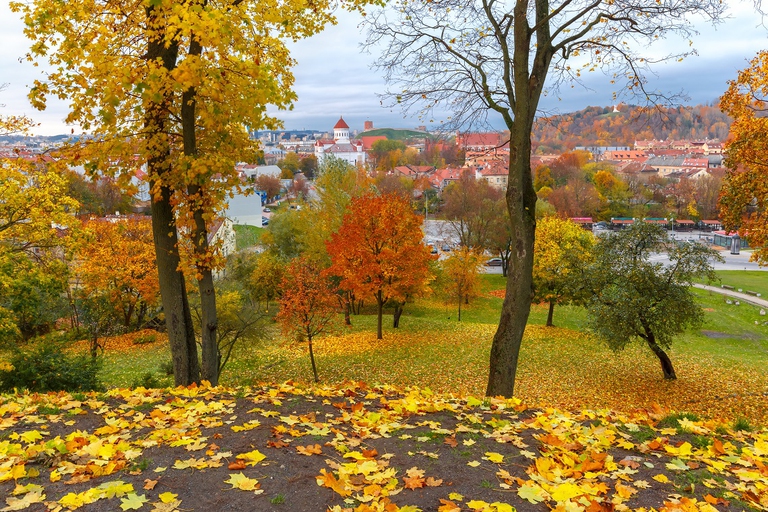
South African court dismisses a major lawsuit by 140,000 Zambian women and children against Anglo American for Kabwe lead poisoning. A setback for affected communities enduring the lasting impact of lead contamination.
We have tried to understand which countries are most committed to environmental democracy during the same month in which the football world cup is taking place in Russia. Don’t worry, Italy doesn’t make an appearance here either.
Whilst the FIFA Football World Cup, the most important international football event, is taking place in Russia, we try to imagine who could win the world cup for respecting environmental regulations by compiling the rankings of the countries that are most committed to the conservation of nature and with the highest involvement of citizens in the decisions that impact the environment. If Brazil, Belgium, Portugal and Croatia are some of the strongest football teams, the Baltic region dominates the index based on the laws in favour of environmental democracy. At the top of the list we can find two scarcely populated countries, that are inhabited by approximately three and two million people respectively, which means roughly the same number of people living in Italy’s capital.
Speaking of Italy, our country didn’t qualify for this world cup either, one that is much more important to us.
People are too often excluded from decision making processes that affect the transformation and exploitation of the environment they live in. Usually, this is due to weak laws that limit public access to information, stop citizens from actively participating to decisions and don’t guarantee justice when environmental damage is caused.
The objective of environmental democracy is to preserve the health of the community and its environment, an objective based on the idea that active participation from the citizens guarantees a fair use of environmental resources. Therefore, environmental democracy sets a standard for how decisions should be made and is based on three fundamental rights: free access to information on resources and environmental issues, participation to the decision making process and demanding the application of environmental protection laws or compensation.
The Environmental Democracy Index (EDI) was designed to carry out global comparisons and promote the dissemination of good practices, this index evaluates these parameters through a series of internationally accepted guidelines created by the UN Environment.
These rankings were made according to the index and they include 70 teams. We decided to enter the first 32 countries from the EDI rankings (the same number as the teams that are taking part in the football tournament) in order to draw a parallel with the football world, by splitting them up into brackets and pitting them against each other. There are quite a few surprises, the European continent has made a good impression overall, many American and African countries can be found at the top of the rankings, whilst Asia isn’t doing too well.
Japan, Chile, Brazil and Bulgaria can be found in group A, respectively occupying the 32nd, 24th, 16th and 7th place in the EDI rankings. Brazil and Bulgaria move on to the next round, the South-American nation was assigned a score of 1.80 and has achieved excellent results especially for access to information. The Brazilian law establishes a right to access information relative to the environment on request and requires the government authorities to make this information available to the public. Bulgaria scored 2.10 points, and thanks to the ratification of the Aarhus Convention on access to information, the participation of citizens in decision making processes and the access to environmental justice, it has shown itself to be a transparent nation, ready to disclose environmental information to its citizens.
Participants: Japan, Chile Brazil and Bulgaria.
Nations advancing to the last sixteen: Brazil and Bulgaria
Group B includes Costa Rica, Cameroon, Indonesia and Hungary, that occupy the 31st, 23rd, 15th and 6th position on the EDI rankings. Therefore, Indonesia and Hungary will advance to the last sixteen with respective scores of 1.80 and 2.12. Indonesia grants its citizens good access to information and the right to take part in a large number of decisions regarding the environment, but is less virtuous when it comes to guaranteeing justice in the case of violations. Most Hungarian laws entail that government agencies provide citizens with the opportunity to actively participate to the decisions relative to environmental issues during the decision making process.
Participants: Costa Rica, Cameroon, Indonesia and Hungary
Nations advancing to the last sixteen: Indonesia and Hungary
Venezuela, Macedonia, Estonia and the United Kingdom are the four nations that can be found in group C. The two best scores, 1.85 and 2.14, belong to Estonia and the United Kingdom, allowing them to advance to the next round. The North European nation obtained excellent results for transparency, good results for justice and satisfactory results for participation. The Estonian government must proactively release information regarding the environment to the public. The United Kingdom shines for its transparency, due to the Freedom of Information Act from the year 2000, that gives anyone the right to access information on request and makes the access to this information quick and cheap. Furthermore, government authorities are forced to disclose environmental information regarding public health.
Participants: Venezuela, Macedonia, Estonia and the United Kingdom
Nations advancing to the last sixteen: Estonia and the United Kingdom
Mongolia, the Dominican Republic, Peru and Ireland are the nations from Group D that can be found at twenty-ninth, twenty-first, thirteenth and eleventh place on the rankings. The two highest ranked nations are Peru and Ireland, with scores of 1.87 and 1.93. The South-American country provides transparency and participations, citizens can express their preference regarding decisions concerning the environment, like projects and patents. Ireland has ratified the Aarhus Convention and obtained an excellent score for transparency; governing authorities must proactively disclose environmental information.
Participants: Mongolia, the Dominican Republic, Peru and Ireland
Nations advancing to the last sixteen: Peru and Ireland
Ukraine, India, Ecuador and South-Africa are in group E, and they are ranked twenty-eighth, twentieth, thirty-second and fourth. India and South-Africa qualify for the next round thanks to their scores of 1.75 and 2.16. The densely populated Asian country stands out for its excellent justice system that guarantees punishment in case of environmental rights violations. The African country has earned good scores in every category and most of the laws require competent agencies to take public opinion into account when making decisions regarding the environment.
Participants: Ukraine, India, Ecuador and South-Africa
Nations advancing to the last sixteen: India and South-Africa
Nicaragua, Mexico, Colombia and the United States belong to group F, and they respectively occupy the twenty-seventh, nineteenth, tenth and third places in the EDI rankings. The best nations from group F are Colombia and the United States, with scores of 1.99 and 2.16. The Colombian constitution ensures great access to environmental information, even though the citizens are not always aware of it. In the United States, the Freedom of Information Act provides access to environmental information on request and restrictively defines the information that can be disclosed. All competent agencies proactively provide the public with useful information on health and environmental quality. The Clean Water Act imposes the publication of biennial reports on the quality of water.
Participants: Nicaragua, Mexico, Colombia and the United States
Nations advancing to the last sixteen: Colombia and the United States
Group G is composed by Trinidad and Tobago, Romania, Panama and Latvia that can be found at the twenty-sixth, eighteenth, ninth and second place. The countries advancing to the last sixteen are Panama, with a score of 2.2 and Latvia, with a score of 2.31. Every Panamanian competent government agency must make environmental information available to citizens. With regards to participation, Institutions must consider the opinion of citizens when making decisions that impact the environment. Latvia was awarded an excellent score for access to information, since the public has the right to receive information on both a state law and constitutional level. The publication of a report on the condition of the environment must be disclosed in the case of an imminent threat to human health or the environment.
Participants: Trinidad and Tobago, Romania, Panama and Latvia
Nations advancing to the last sixteen: Panama and Latvia
Finally, the nations found in group H are Argentina, El Salvador, Russia and Lithuania, holding the twenty-fifth, seventeenth, eight and first place in the Environmental Democracy Index rankings. Russia and Lithuania are the last two nations to qualify, with scores of 2.6 and 2.39. Russian government agencies release data regarding the environment with good transparency and data regarding air quality and drinking water are available to the public. Lithuania is the nation that obtained the highest EDI score, especially due to the excellent results for transparency and justice. Citizens can access environmental information on request and government agencies actively invite citizens to take part in the initial phase of the decision making process.
Participants: Argentina, El Salvador, Russia and Lithuania
Nations advancing to the last sixteen: Russia and Lithuania
The European nation is the winner between Bulgaria and Indonesia, thanks to the extreme transparency and the leading role played by citizens in environmental decisions. Indonesia still has some deficiencies in the the application of laws in favour of the environment.
The United Kingdom wins this match, its citizens benefit from fair rights and have the power to challenge various decisions that could potentially impact the environment. Peru had a good score for transparency, participation and justice, but there are still some financial and gender issues that hinder access to justice.
South-Africa advances to the quarter finals, the South-African government must proactively seek the consent of public opinion during the decision making process and for measures regarding the environment. Even though Colombia had a good overall score , citizens can rarely participate to the drafting process of plans that could potentially impact the environment.
Latvia wins the “Baltic derby” thanks to the easy access to environmental information for citizens. Latvians can also contribute to the development of regulations, policies, plans and management programs. On the other hand, in Russia, only some of the government decisions on environmental issues must be publicized through the media and access to justice is not easy for all citizens.
Hungary wins the match, a nation with laws that require the public to be able to take part in the initial phase of most of the decisions that could have a significant impact on the environment. Access to environmental justice in Brazil is especially difficult for the poor and ethnic groups.
Ireland wins a pretty even match won by a handful of points, Irish citizens have access to a large quantity of environmental information on request and have the opportunity to take part in multiple decisions. Estonia has to improve its access to justice and the protection of the rights of citizens on environmental issues.
The match between the two world powers ends with the United States’ victory. US citizens can access information clearly and simply and can challenge administrative decisions. India does not disclose information on drinking water to the residents of the capital and women are still discriminated in their access to justice.
The last match of the final sixteen sees Lithuania winning over Panama thanks to the large amount of environmental information given to the public, like data on air quality and drinking water. Data on air quality and drinking water in Panama City are not available to the public.
The UK defeats Bulgaria thanks to the great liberty given to its citizens, who have the right to challenge any decision, act or omission carried out by private actors who are potentially violating environmental rights. Even though Bulgaria has good transparency, it rarely promotes the active participation of citizens and licences given to extraction industries are not made public.
Latvia is the winner of this match, its government is forced to give citizens the opportunity to take part in the decision making process for environmental issues in a wide array of sectors. South-Africa has limited access to information, for example, only a few Environmental Impact Assessments are available to the public.
Hungary qualifies for the semi finals thanks to the great freedom of information and for the importance given to the opinion of citizens on environmental issues. Ireland also gives large amounts of information to its citizens, but access to this data is sometimes complex due to the lack of a standardisation. Furthermore, the application of the decisions of criminal courts is not very quick.
The close match between the US and Lithuania sees the Baltic country that gives citizens the right to lodge environmental complaints in court and contest government decisions that violate environmental rights coming out on top. Authorities must also ask for the opinion of citizens for any decision that may have an impact on the environment. The United States have an excellent score overall, but some states are more restrictive than others, and access to environmental justice is difficult.
Latvian citizens have the right to request information from every branch of the government and the most important ministers must proactively make environmental information public. Thanks to its transparency towards public opinion, Latvia defeats the United Kingdom, where the government isn’t forced to quickly divulge pertinent information in the case of environmental emergencies. British laws do not include public participation to the development of policies that could have a significant impact on the environment.
Lithuania wins the second semi-final, since the opinion of citizens matters when environmental policies are being written. Most Hungarian laws do not include the obligation for government agencies to request the opinion of citizens on decision relative to environmental issues and the violation of environmental rights are not effectively protected by legislation.
The two highest ranking nations on the EDI rankings face off in the finals. Lithuania is the winner, a country that obtained a very high score in the three parameters, especially for transparency and justice. For example, Lithuanian citizens can appeal rejections to disclose environmental information from institutions and present a wide array of requests in case of environmental rights violations. Information can be easily accessed in Latvia, but in the field of application of laws, the completion of legal proceedings takes an excessive amount of time.
Siamo anche su WhatsApp. Segui il canale ufficiale LifeGate per restare aggiornata, aggiornato sulle ultime notizie e sulle nostre attività.
![]()
Quest'opera è distribuita con Licenza Creative Commons Attribuzione - Non commerciale - Non opere derivate 4.0 Internazionale.
South African court dismisses a major lawsuit by 140,000 Zambian women and children against Anglo American for Kabwe lead poisoning. A setback for affected communities enduring the lasting impact of lead contamination.
Controversial African land deals by Blue Carbon face skepticism regarding their environmental impact and doubts about the company’s track record, raising concerns about potential divergence from authentic environmental initiatives.
Majuli, the world’s largest river island in Assam State of India is quickly disappearing into the Brahmaputra river due to soil erosion.
Food imported into the EU aren’t subject to the same production standards as European food. The introduction of mirror clauses would ensure reciprocity while also encouraging the agroecological transition.
Sikkim is a hilly State in north-east India. Surrounded by villages that attracts outsiders thanks to its soothing calmness and natural beauty.
Sikkim, one of the smallest states in India has made it mandatory for new mothers to plant saplings and protect them like their children to save environment
Chilekwa Mumba is a Zambian is an environmental activist and community organizer. He is known for having organized a successful lawsuit against UK-based mining companies.
What led to the Fukushima water release, and what are the impacts of one of the most controversial decisions of the post-nuclear disaster clean-up effort?
Nzambi Matee is a Kenyan engineer who produces sustainable low-cost construction materials made of recycled plastic waste with the aim of addressing plastic pollution and affordable housing.













